This coming weekend, I will be in Atlanta for DragonCon, the annual highlight of my professional calendar. For those of you unfamiliar with the phenomenon known as DragonCon, it is a huge convention that takes over Atlanta’s Peachtree Center every Labor Day weekend. In the past, the convention has attracted as many as 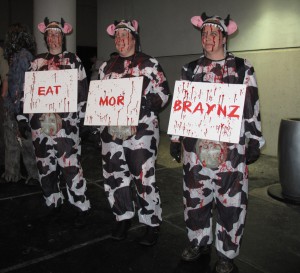 80,000 people. This year, in an attempt to control the crowd just a little, I believe attendance at the con has been capped at 65,000. Yeah, that’s still pretty big.
80,000 people. This year, in an attempt to control the crowd just a little, I believe attendance at the con has been capped at 65,000. Yeah, that’s still pretty big.
The con attracts television and movie stars (although I don’t know how the SAG strike will impact their numbers this year), directors, producers, writers (of scripts, novels, comic books, non-fiction, poetry, and pretty much every other written form), agents, editors, artists working in all media, musicians, animators, stand-up comics, costuming professionals, jewelry-makers, crafts-people of all sorts, and, of course, fans from all over the world.
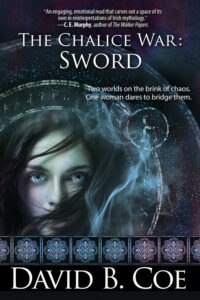 It is a spectacle. It is Mardi Gras for geeks. It is a party. It is a chance to do business. It is an opportunity to reconnect with friends. It is more fun than being six years old.
It is a spectacle. It is Mardi Gras for geeks. It is a party. It is a chance to do business. It is an opportunity to reconnect with friends. It is more fun than being six years old.
I will be on programming again this year, doing panels, signings, and a few mentoring sessions for the writers’ track. And when I am not involved in official convention programming, I will be in the Westin Hotel bar. If you’re in Atlanta for the weekend, please come by and say hello!
Here is my official schedule. (Note: I am listed in all program literature under “D.B. Jackson.”)
*****
Title: A Fond Farewell to Mrs. Maisel *Spoiler Warning*
Description: The final season of Mrs. Maisel took Midge’s career in a new direction, while her entire family is growing in new, unexpected ways. We might have gotten flashes of Midge’s future, but there are still plenty of things for our panelists to discuss.
Panelists: Jenna Johnson, D.B. Jackson, Dan Jolley, Cecilia Dominic, Elizabeth Carpenter(M)
Time: Fri 11:30 am
Location: Augusta Courtland Grand (Length: 1 Hour)
Title: D.B. Jackson signing booth 1201
Description: Come to the special author signing at The Missing Volume booth 1201
Panelists: D.B. Jackson
Time: Fri 01:00 pm
Location: Vendor Hall Floor 1 Mart2 (Length: 1 Hour)
Title: Themed Signing Alternate & Historic Fiction Track: History with a Twist
Panelists: Jean Marie Ward, Tamsin L. Silver, D.B. Jackson, David Boop, Gail Z. Martin, Walter Hunt
Time: Fri 05:30 pm
Location: Overlook Westin (Length: 1 Hour)
Title: The Gather: Welcome Home!!!!!!
Description: The best Gathering around of authors and fans! Who knows what surprises and treasures are to be found. We have more authors than the app will allow us to list, so you will be sure to find some great books to take home with your amazing Con stories.
Panelists: Milton J. Davis(O), John G. Hartness, Sherrilyn Kenyon, Philip Ligon, Jay Boyce, Jeffrey Falcon Logue, Patrick Dugan, William Joseph Roberts, Michael J Allen, Chris Jackson, Marc Alan Edelheit, Tamsin L. Silver, G. S. Jennsen, Katie Cross, David Boop, Quincy J. Allen, Tyra Burton, Matt Dinniman, Gini Koch, James Palmer, Darin Kennedy, Joelle Presby, Tao Wong, Harmon Cooper, D.B. Jackson, AJ Hartley, D.R. Perry, John Jackson Miller, Megan Mackie, Ellie Raine, Esther Friesner, Sean Fletcher, Katharine E. Wibell, Kaitlin Bevis, Isabelle Hardesty, Stacey Rourke, Mari Mancusi, Eric R. Asher, Frank Morin, Leanna Renee Hieber, Madaug Hishinuma, Wesley Chu, Bobby Nash, Howard Andrew Jones, Dennis Lee Robinson
Time: Fri 08:00 pm
Location: International South Hyatt (Length: 4 Hours)
Title: Anthology: A Buncha Great Writers Got Together…
Description: Wondering about anthologies? How to get invited into one? We’re going to lead you down the pathway to writing for anthologies.
Panelists: Trisha J. Wooldridge, Esther Friesner, Jeff Burns, Nancy Knight, Jean Marie Ward, D.B. Jackson
Time: Fri 08:30 pm
Location: Embassy EF Hyatt (Length: 1 Hour)
Title: A Fan Discussion of The Last Kingdom: Seven Kings Must Die *Spoiler Alert*
Description: Seven Kings Must Die was our last look into the world of Uthred, son of Uthred, and his companions. What did you think of the movie as compared to the TV series? What excited you, or left you wanting more? Did you feel that it wrapped up things nicely? Come discuss with your fellow fans!
Panelists: Emily Myerscough(M), Corey Applegate, Cathalson, Katie Brewster, D.B. Jackson
Time: Sat 02:30 pm
Location: Macon Courtland Grand (Length: 1 Hour)
Title: How Epic is Epic?
Description: Some stories are so big they require more than one book…sometimes many more than one. These can be called epic stories. What makes a story epic? How do authors decide how many books their big story requires?
Panelists: Kevin J. Anderson, Jean Marie Ward, David Weber, D.B. Jackson, Timothy Zahn
Time: Sat 05:30 pm
Location: International South Hyatt (Length: 1 Hour)
Title: Back in Time: Historical Urban Fantasy
Description: Our panelists explore supernatural beings & magic set in historical real-world settings.
Panelists: Cherie M. Priest, Chelsea Quinn Yarbro, Marie Brennan, D.B. Jackson, Carol Malcolm(M), Aaron Michael Ritchey
Time: Sat 08:30 pm
Location: Chastain 1-2 Westin (Length: 1 Hour)
Title: Many Tongues, 1 World: Using or Creating Languages in Literature
Description: We will be pulling in authors and a linguist to discuss using and creating languages for fantasy settings. Sometimes they may pull from the real world, other times it might be making things from scratch.
Panelists: Davis Ashura, Mera Rose, Mel Todd, Kevin McLaughlin, D.B. Jackson, Alex Shvartsman
Time: Sun 01:00 pm
Location: Embassy CD Hyatt (Length: 1 Hour)
Title: 15 Minute Mentor Sessions
Description: A chance for budding authors to talk one-on-one with a successful industry professional about business, promotion, the writing process, & career advice. Sign up in the Writer’s Track. (Embassy E/F)
Panelists: James Nettles, Darin Kennedy, D.B. Jackson, R.J. Blain
Time: Sun 02:30 pm
Location: Embassy G Hyatt (Length: 1 Hour)
Title: Are You a Good Witch, or a Bad Witch? Varieties & Approaches in UF
Description: Witches in Urban Fantasy run the gamut from helpful to extremely dangerous and self-serving, often in the same story. Our authors discuss their characters and the categories they fall into.
Panelists: Jennifer Blackstream, D.B. Jackson, Rachel Rawlings, Meg M Robinson, Melissa F. Olson, Carol Malcolm(M)
Time: Sun 05:30 pm
Location: Chastain 1-2 Westin (Length: 1 Hour)
Title: D.B. Jackson/David B. Coe signing booth 1201
Description: Come to the special author signing at The Missing Volume booth 1201
Panelists: D.B. Jackson/David B. Coe
Time: Mon 11:00 am
Location: Vendor Hall Floor 1 Mart2 (Length: 1 Hour)









 The news of Jimmy Buffett’s death this past weekend, hit me surprisingly hard, and I am still trying to figure out why. Buffett, the “Roguish Bard of Island Escapism,” as the New York Times called him in an online obituary, was a strong musical presence in my life. I have been listening to his music for more than four decades, I own a bunch of his albums, and over the years I have learned to play many of his songs on my guitars (none of them is particularly difficult to master). But the truth is, if asked to name my top five or top ten or even top twenty-five favorite bands and musicians, he probably wouldn’t make it onto any of those lists. So why do I feel as though I’ve lost a friend?
The news of Jimmy Buffett’s death this past weekend, hit me surprisingly hard, and I am still trying to figure out why. Buffett, the “Roguish Bard of Island Escapism,” as the New York Times called him in an online obituary, was a strong musical presence in my life. I have been listening to his music for more than four decades, I own a bunch of his albums, and over the years I have learned to play many of his songs on my guitars (none of them is particularly difficult to master). But the truth is, if asked to name my top five or top ten or even top twenty-five favorite bands and musicians, he probably wouldn’t make it onto any of those lists. So why do I feel as though I’ve lost a friend? 80,000 people. This year, in an attempt to control the crowd just a little, I believe attendance at the con has been capped at 65,000. Yeah, that’s still pretty big.
80,000 people. This year, in an attempt to control the crowd just a little, I believe attendance at the con has been capped at 65,000. Yeah, that’s still pretty big. It is a spectacle. It is Mardi Gras for geeks. It is a party. It is a chance to do business. It is an opportunity to reconnect with friends. It is more fun than being six years old.
It is a spectacle. It is Mardi Gras for geeks. It is a party. It is a chance to do business. It is an opportunity to reconnect with friends. It is more fun than being six years old.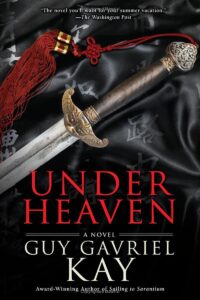 I have just started reading a book that I have read at least one time before. Maybe two. It is Under Heaven, by Guy Gavriel Kay, a terrific historical fantasy set in a world modeled after Tang Dynasty China. The truth is, I read many of Guy’s books more than once. I read books by other authors multiple times as well, and I would recommend that others do the same — writers AND non-writers.
I have just started reading a book that I have read at least one time before. Maybe two. It is Under Heaven, by Guy Gavriel Kay, a terrific historical fantasy set in a world modeled after Tang Dynasty China. The truth is, I read many of Guy’s books more than once. I read books by other authors multiple times as well, and I would recommend that others do the same — writers AND non-writers.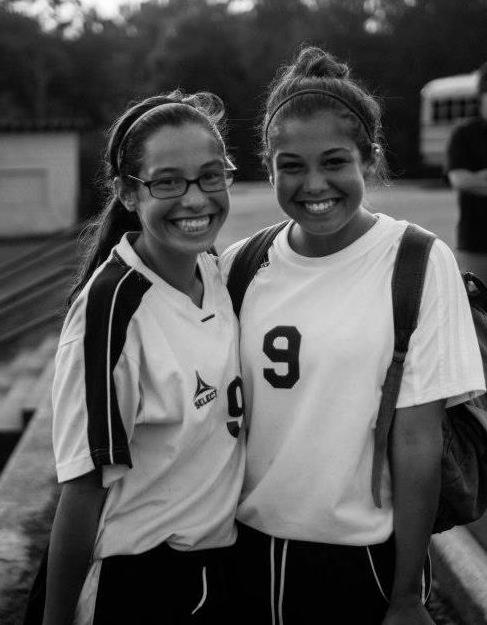 My mind has been on Title IX again over the past month, as Nancy and I (and our daughters, while we were all together in Colorado) watched the Women’s World Cup. Soccer has long been a very big deal in our household. Our daughters grew up playing, first in weekend league soccer and then through middle school and high school. Both of them were accomplished players. Both of them continue to love the sport. And so we all look forward to the World Cup — men’s and women’s — the way we look forward to holidays and birthdays.
My mind has been on Title IX again over the past month, as Nancy and I (and our daughters, while we were all together in Colorado) watched the Women’s World Cup. Soccer has long been a very big deal in our household. Our daughters grew up playing, first in weekend league soccer and then through middle school and high school. Both of them were accomplished players. Both of them continue to love the sport. And so we all look forward to the World Cup — men’s and women’s — the way we look forward to holidays and birthdays.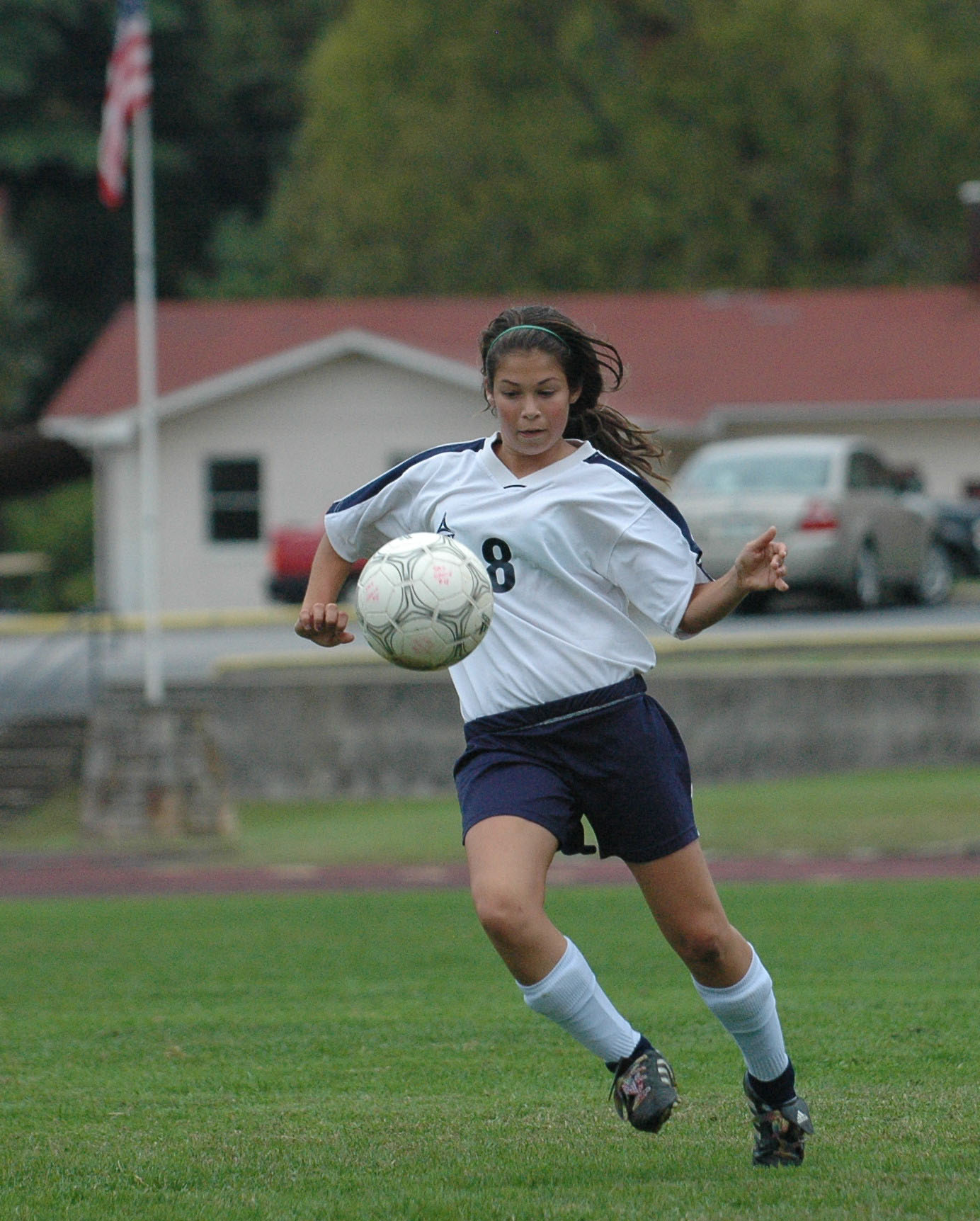 World Cup soccer — men’s and women’s — begins with what is called group play. The field of thirty-two is divided into eight groups of four. Each group plays among themselves, three matches for each team, and they get three points for a win, one point for a draw, and none for a loss. The two teams with the best record from each group advance to the knockout stage, so called because there are no ties, and the loser of each match is knocked out of the competition.
World Cup soccer — men’s and women’s — begins with what is called group play. The field of thirty-two is divided into eight groups of four. Each group plays among themselves, three matches for each team, and they get three points for a win, one point for a draw, and none for a loss. The two teams with the best record from each group advance to the knockout stage, so called because there are no ties, and the loser of each match is knocked out of the competition.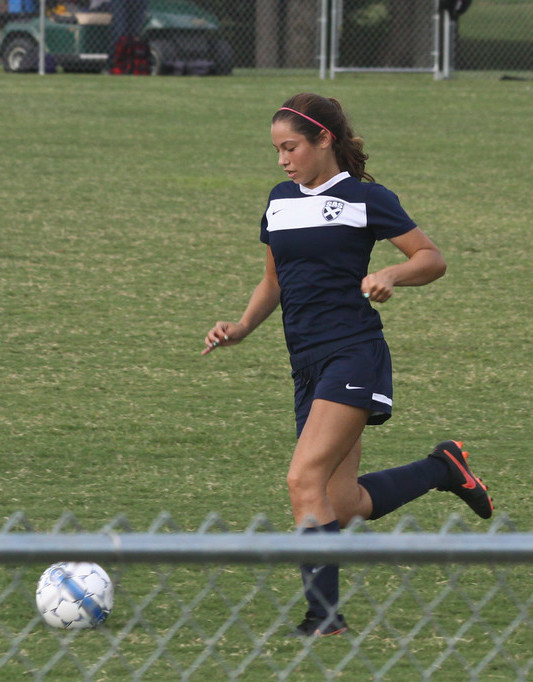 Despite American disappointment, these developments actually constitute incredibly good news for women’s soccer around the world. Title IX paved the way for the U.S. women to become a dominant team, and in many European nations, where traditional football is THE sport, women’s teams have access to facilities and funding. But in other places this is simply not the case. The Jamaican woman faced so many financial hardships in their preparation for this year’s Cup that they literally had to rely on crowdfunding in order to participate.
Despite American disappointment, these developments actually constitute incredibly good news for women’s soccer around the world. Title IX paved the way for the U.S. women to become a dominant team, and in many European nations, where traditional football is THE sport, women’s teams have access to facilities and funding. But in other places this is simply not the case. The Jamaican woman faced so many financial hardships in their preparation for this year’s Cup that they literally had to rely on crowdfunding in order to participate.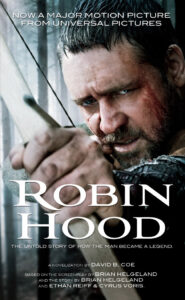 But the media work I have done in the past wasn’t like that. Back in 2009-2010, I wrote the novelization of Ridley Scott’s movie Robin Hood, starring Russell Crowe and Cate Blanchett. The movie wasn’t out yet — I worked from a script — and I didn’t know whether or not I would love it. (I didn’t.) In 2018, I wrote a novel that tied in with the History Channel’s Knightfall series about the Knights Templar. In this case, I got to see all the episodes of the first season before the series was aired. I liked the show well enough.
But the media work I have done in the past wasn’t like that. Back in 2009-2010, I wrote the novelization of Ridley Scott’s movie Robin Hood, starring Russell Crowe and Cate Blanchett. The movie wasn’t out yet — I worked from a script — and I didn’t know whether or not I would love it. (I didn’t.) In 2018, I wrote a novel that tied in with the History Channel’s Knightfall series about the Knights Templar. In this case, I got to see all the episodes of the first season before the series was aired. I liked the show well enough.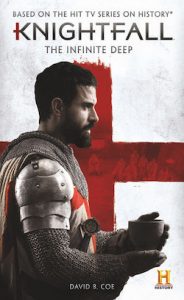 With the Knightfall book, I had a good deal more freedom and control, and so I enjoyed the process much, much more. But still I was mostly writing from the viewpoint of someone else’s characters. There is one point of view character, though, who I made my own — a child who appears later in the series as an adult. But her childhood POV was mine and gave me that sense of ownership, of personal investment in the book.
With the Knightfall book, I had a good deal more freedom and control, and so I enjoyed the process much, much more. But still I was mostly writing from the viewpoint of someone else’s characters. There is one point of view character, though, who I made my own — a child who appears later in the series as an adult. But her childhood POV was mine and gave me that sense of ownership, of personal investment in the book.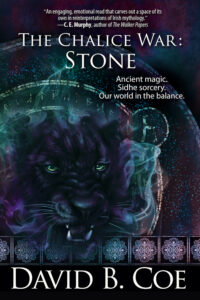 I have written a lot of books and stories over the years. The truth is, I love all of them. I can tell you a hundred things I like about every book I’ve published, and I believe if I could convince people to read each of them, the books would be very popular. But the fact is, as is true with most authors, some of my books have done far better commercially than others. And, as it happens, the ones that have tended to do well are those that are most easily and succinctly described. The Thieftaker books are my most successful. How do I pitch them to interested readers? “These are magical mysteries set against the backdrop of the American Revolution.” The new series, the Chalice War, is also easy to describe — “It’s a modern urban fantasy steeped in Celtic mythology.” These books, I have found, are as easy to sell as the Thieftaker books, and that is saying something.
I have written a lot of books and stories over the years. The truth is, I love all of them. I can tell you a hundred things I like about every book I’ve published, and I believe if I could convince people to read each of them, the books would be very popular. But the fact is, as is true with most authors, some of my books have done far better commercially than others. And, as it happens, the ones that have tended to do well are those that are most easily and succinctly described. The Thieftaker books are my most successful. How do I pitch them to interested readers? “These are magical mysteries set against the backdrop of the American Revolution.” The new series, the Chalice War, is also easy to describe — “It’s a modern urban fantasy steeped in Celtic mythology.” These books, I have found, are as easy to sell as the Thieftaker books, and that is saying something. The three books of the Case Files of Justis Fearsson and the Radiants duology might well be my favorites of all the books I’ve written. They are exciting, emotional, filled with great characters, and paced within an inch of their lives. But they are far more difficult to describe in a single sentence than other books and, likely as a result, they have never done as well commercially as I hoped they would.
The three books of the Case Files of Justis Fearsson and the Radiants duology might well be my favorites of all the books I’ve written. They are exciting, emotional, filled with great characters, and paced within an inch of their lives. But they are far more difficult to describe in a single sentence than other books and, likely as a result, they have never done as well commercially as I hoped they would.